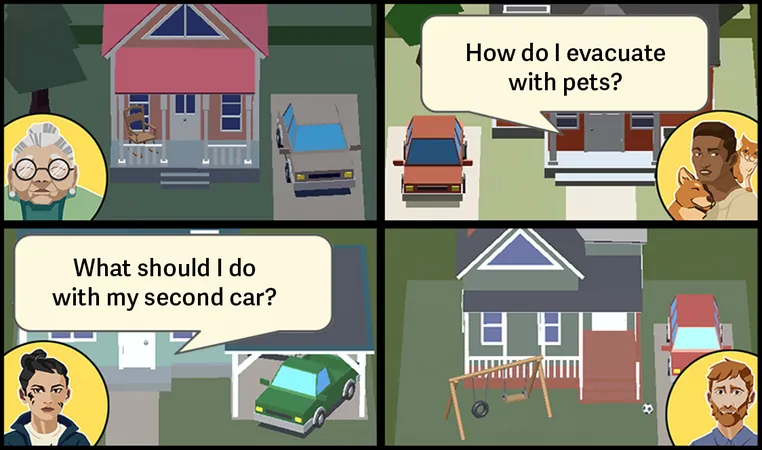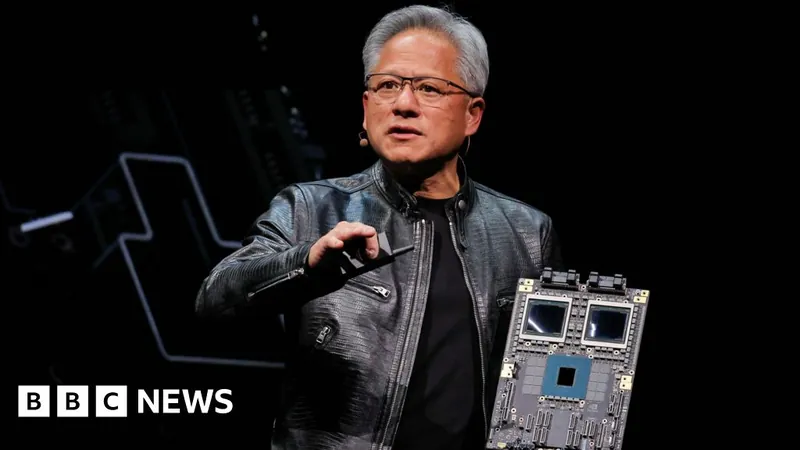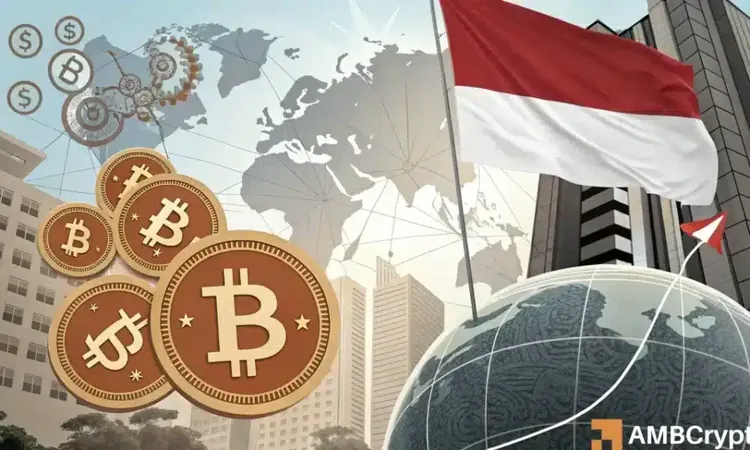
Gaming for Safety: How Virtual Reality is Preparing Communities for Wildfire Disasters
2025-07-01
Author: Liam
Prepare for the Unexpected: Gaming for Wildfire Readiness
As wildfires become increasingly common, a group of innovative researchers from UC Santa Cruz is on a mission to enhance community preparedness through gaming. With simulations that mimic the tough choices people face during an emergency evacuation, these games aim to sharpen safety instincts before disaster strikes.
Feel the Heat: The Challenge of Evacuation Decision-Making
When families must flee their homes due to an impending wildfire, split-second decisions can make all the difference. Do you take one car with your most cherished belongings, risking jammed roads that could hinder firefighters? Or do you opt for multiple vehicles, potentially trapping yourself in a traffic nightmare? This stark reality is what players confront in the simulation game ‘Firewise Residents.’
Bridging Community Gaps: Game Design Meets Wildfire Resilience
Aimed at creating a rich dialogue, the passionate team of game designers, led by doctoral student MJ Johns, uses engaging games to stimulate conversations about wildfire safety in local communities. By inviting residents to design their experiences, they hope to foster productive discussions about resilience, given the alarming rise in wildfires driven by climate change.
Building Connections: A Game-Changer for Communities in Crisis
Professor Katherine Isbister's commitment to emotional and social connection through interactive gaming complements efforts led by UC Berkeley’s Kenichi Soga. Together, they’re bringing academia, local residents, and emergency personnel together to devise groundbreaking methods for wildfire risk management, including the development of serious games.
Mobile Mini-Games: A Fun, Interactive Way to Prepare
The researchers have rolled out three mobile mini-games: ‘Firewise Residents,’ ‘FireSafe Friends,’ and ‘Find Your Things.’ Each game tackles real-life dilemmas, such as how to prepare for an evacuation or how to create fire-resistant landscaping, all while engaging players in complex decision-making scenarios.
Game Design Meets Reality: Crafting Real-World Solutions
Staying true to their mission, the researchers continually refine their games based on community feedback. Local residents in Santa Cruz and the Bay Area have significantly influenced the design process, ensuring that multiple perspectives are woven into gameplay.
Joining Forces: Expanding the Gaming Experience for Greater Impact
The team’s ambition reaches beyond California, as they seek to extend their games to classrooms where young students can learn about disaster preparedness and spark conversations at home. They are also testing these games internationally, ensuring the insights gained can contribute to broader climate resilience efforts.
Enhancing Engagement: The Power of Virtual Reality
With the horrific memories of wildfires still fresh, Kurniawan’s lab is harnessing the potential of virtual and augmented reality to tackle evacuation preparedness. By creating immersive experiences that encourage players to understand the importance of packing a go-bag and managing evacuation stress, the team hopes to empower communities.
Assessing Impact: A Community-Centric Approach
As researchers assess the effectiveness of their games, they focus not only on individual responses but also on community dynamics. They are examining how gameplay can foster collaborative learning, crucial for building resilient communities, particularly where collective action is necessary.
The Path Ahead: More Than Just Games
Looking to the future, the researchers aim to leverage insights from their wildfire preparedness games to address other environmental challenges, such as rising sea levels. They envision a suite of educational tools that can empower communities in the aftermath of disasters, ensuring they’re better prepared for whatever comes next.
Get Involved: Empower Your Community Through Gaming!
As the stakes rise with climate change, these pioneering games offer more than just entertainment; they are powerful strategies for community resilience. By engaging in these interactive experiences, you can be part of a movement that not only prepares you for wildfires but also fosters a stronger, more connected community.









 Brasil (PT)
Brasil (PT)
 Canada (EN)
Canada (EN)
 Chile (ES)
Chile (ES)
 Česko (CS)
Česko (CS)
 대한민국 (KO)
대한민국 (KO)
 España (ES)
España (ES)
 France (FR)
France (FR)
 Hong Kong (EN)
Hong Kong (EN)
 Italia (IT)
Italia (IT)
 日本 (JA)
日本 (JA)
 Magyarország (HU)
Magyarország (HU)
 Norge (NO)
Norge (NO)
 Polska (PL)
Polska (PL)
 Schweiz (DE)
Schweiz (DE)
 Singapore (EN)
Singapore (EN)
 Sverige (SV)
Sverige (SV)
 Suomi (FI)
Suomi (FI)
 Türkiye (TR)
Türkiye (TR)
 الإمارات العربية المتحدة (AR)
الإمارات العربية المتحدة (AR)